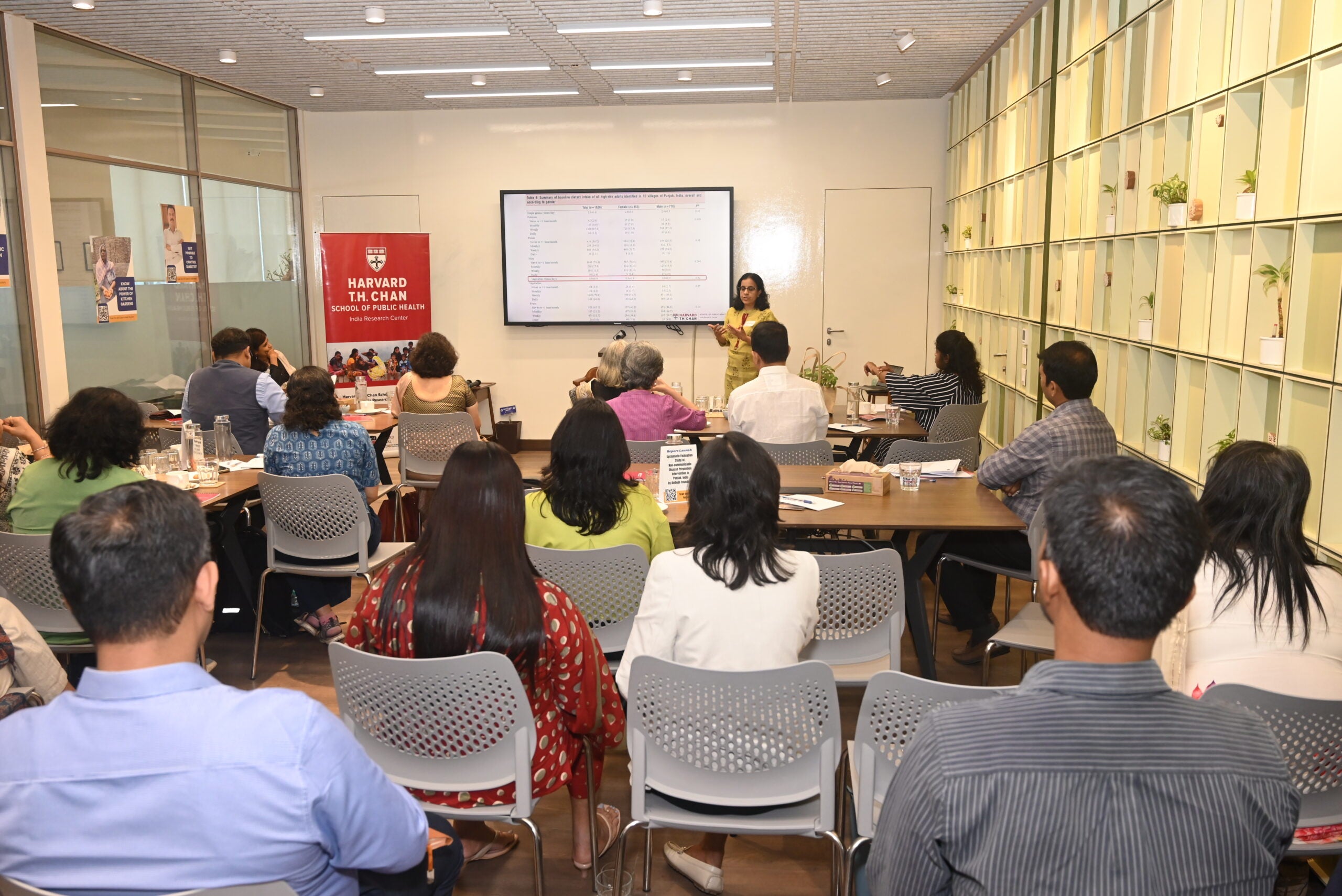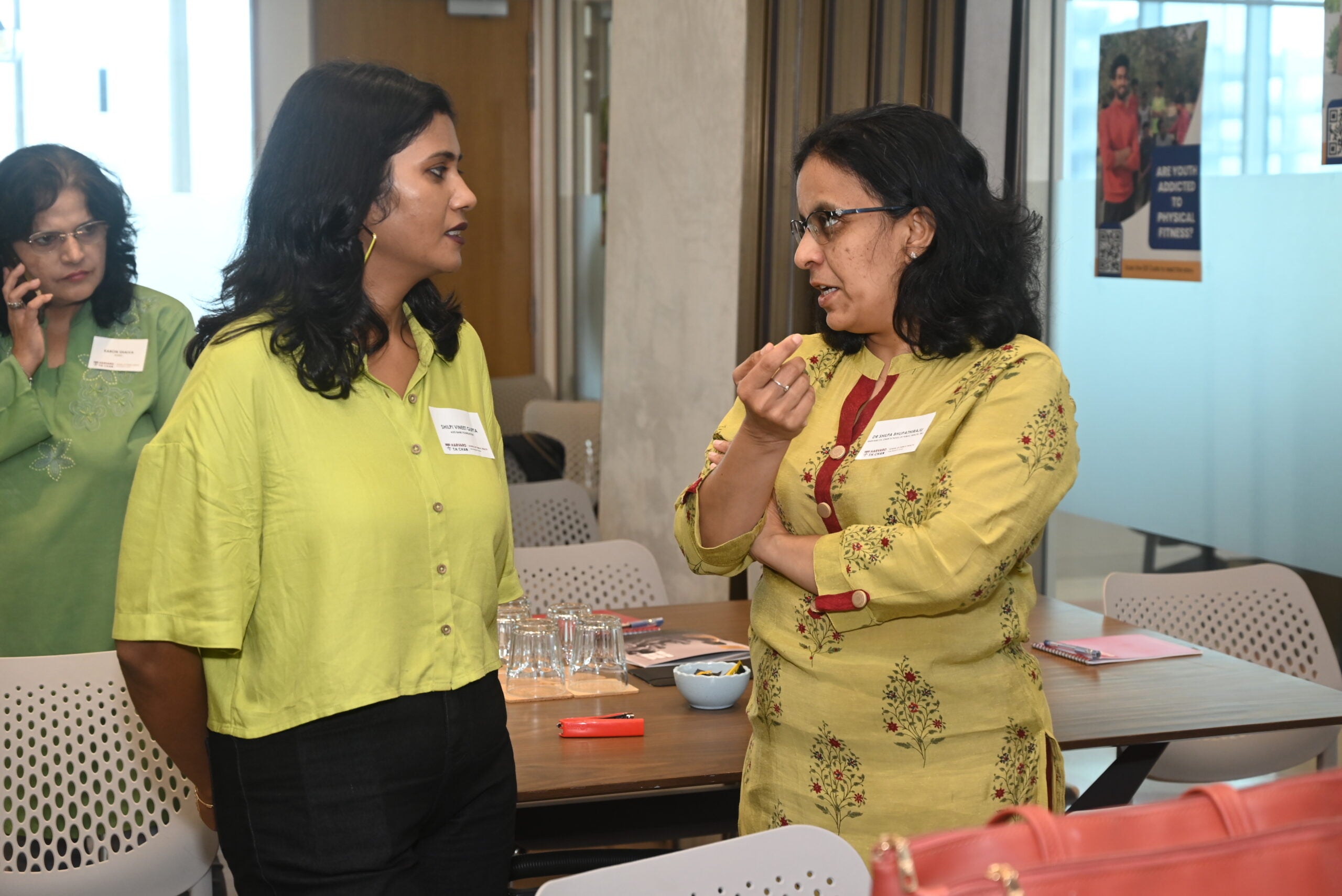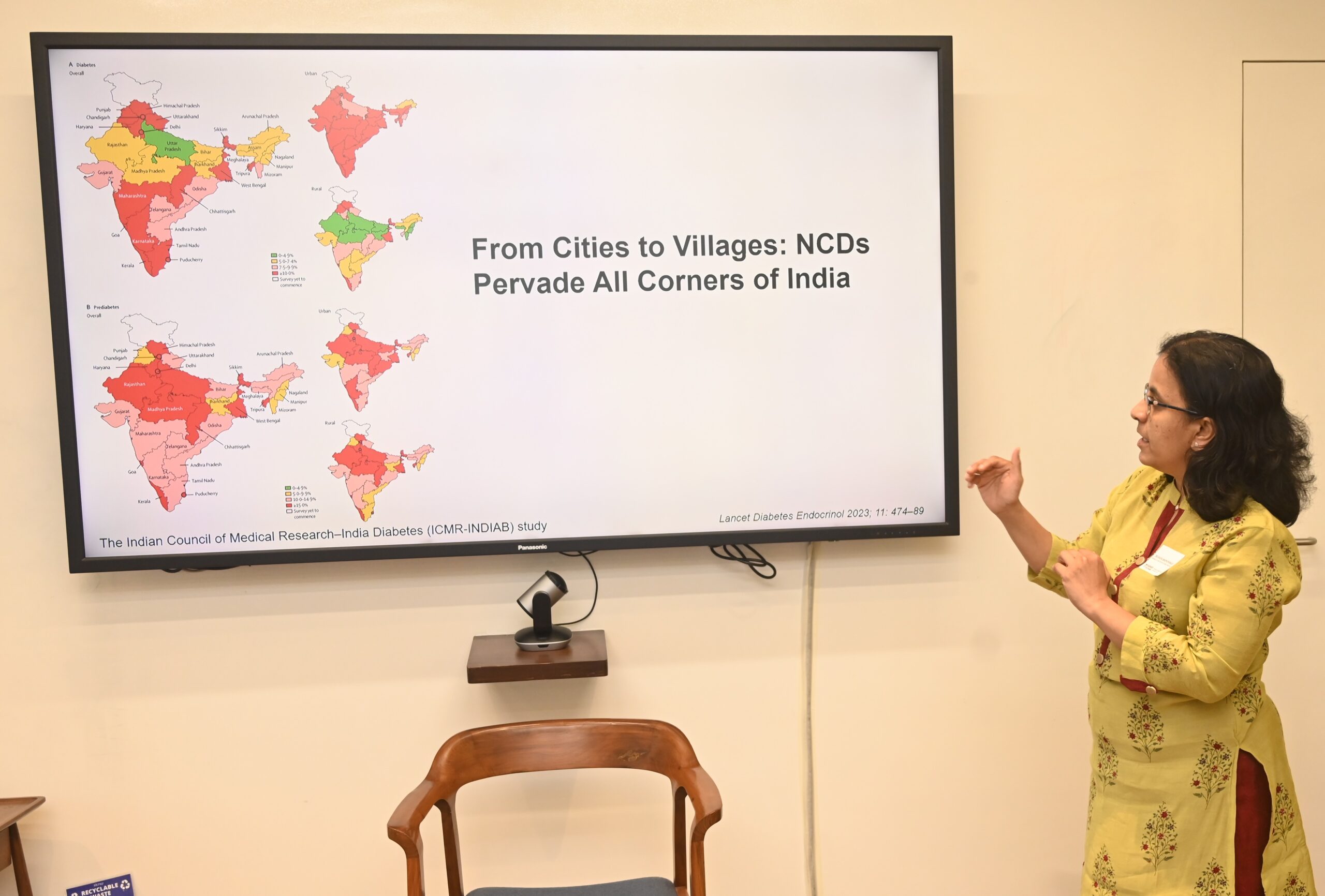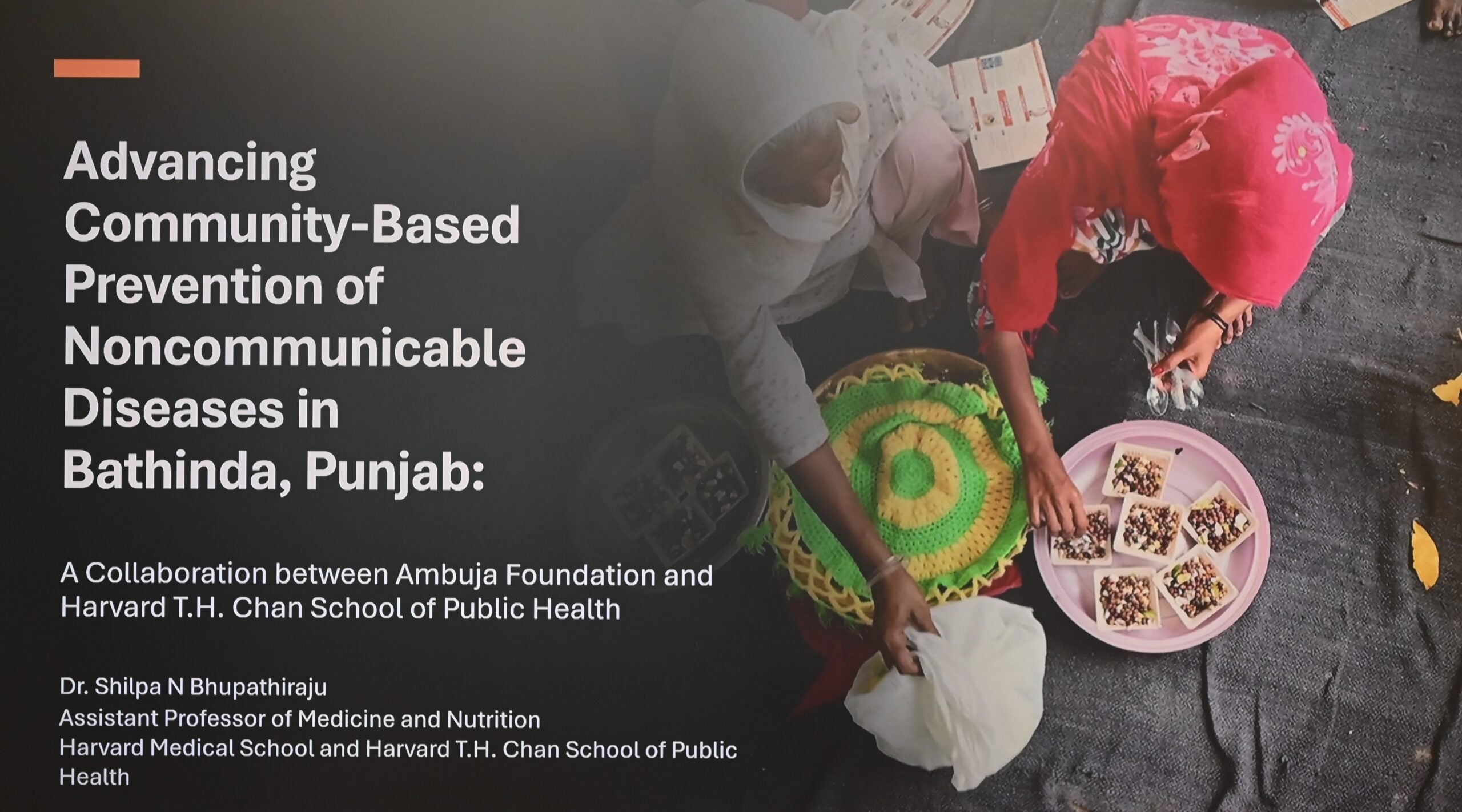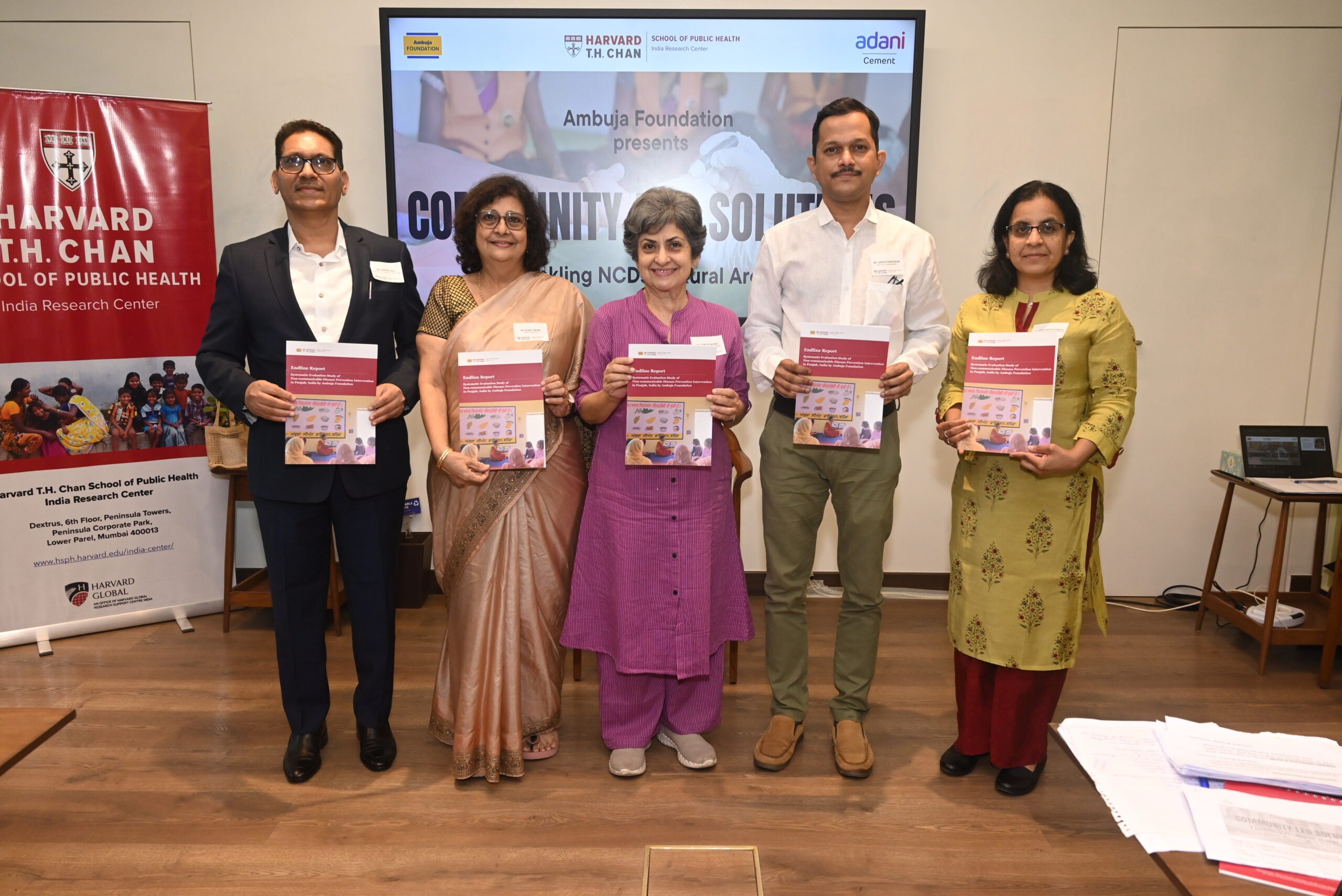India Research Center
The India Research Center, based in Mumbai, serves as a hub for Harvard Chan School’s research projects, educational programs, and knowledge translation and communication work across India.
Dextrus, 6th floor,
Peninsula Towers,
Peninsula Corporate Park,
Lower Parel, Mumbai 400013
India
Control of Non-Communicable Diseases

With the India Research Center (IRC) Dr. Shilpa Bhupathiraju, Assistant Professor of Nutrition, Harvard T.H. Chan School of Public Health, worked with the Ambuja Foundation to evaluate the Foundation’s CSR program on comprehensive management of Non-Communicable Diseases (NCD) with a focus on prevention of Hypertension and Diabetes. The IRC conducted an evaluation of the NCD intervention through a stepped-wedged trial covering 12 villages in Bhatinda, Punjab.
Dr. Lindsay Jaacks, the former Principal Investigator of the research study, and Dr. Bhupathiraju designed the research protocol. The study was conducted over a few years in the same communities, and the endline was conducted in January 2023. The study is unique, given that it is one of the attempts to estimate the prevalence of high-risk Community-Based Assessment Checklist (CBAC) scores in a large population-based sample. Given that the Government of India aims to undertake population-based screening of all adults for Non-Communicable Diseases, the results of this study are directly translatable for policy action.
The India Research Center held its inaugural symposium on NCDs with the goal of discussing evidence-based best practices from around the globe and emerging models and potential solutions for the Indian context.
The findings from the baseline were published in an article titled “A community-based noncommunicable disease prevention intervention in Punjab, India: Baseline characteristics of 11,322 adults” in the “Indian Journal of Community Medicine“. The article describes the results of a large-scale, community-based non-communicable diseases screening conducted in Punjab, India, using the Government of India’s Community Based Assessment Checklist (CBAC) scoring system.
Learnings from the baseline study and publication were discussed in a webinar held in April, 2022.
A knowledge dissemination event was hosted at the Harvard T.H. Chan School of Public Health – India Research Center for the launch of a study report titled “Systematic Evaluation of a Non-Communicable Disease Prevention Intervention in Punjab, India”.
The study evaluated community-based interventions implemented by the Ambuja Foundation over an eighteen-month period, focusing on their outcomes and potential for replication. The discussion underscored that low-cost, community-based interventions, when rooted in local context and guided by scientific evidence, can lead to measurable health outcomes.
Through this study, the Harvard T.H. Chan School of Public Health – India Research Center exemplifies its role in bringing together the Harvard’s scientific rigor with the lived realities, implementation experience, and contextual knowledge of Indian collaborators. Dr. Bhupathiraju’s scientific direction, alongside the Ambuja Foundation’s implementation strength, highlights the value of such collaborative, field-informed approaches to improving public health.

